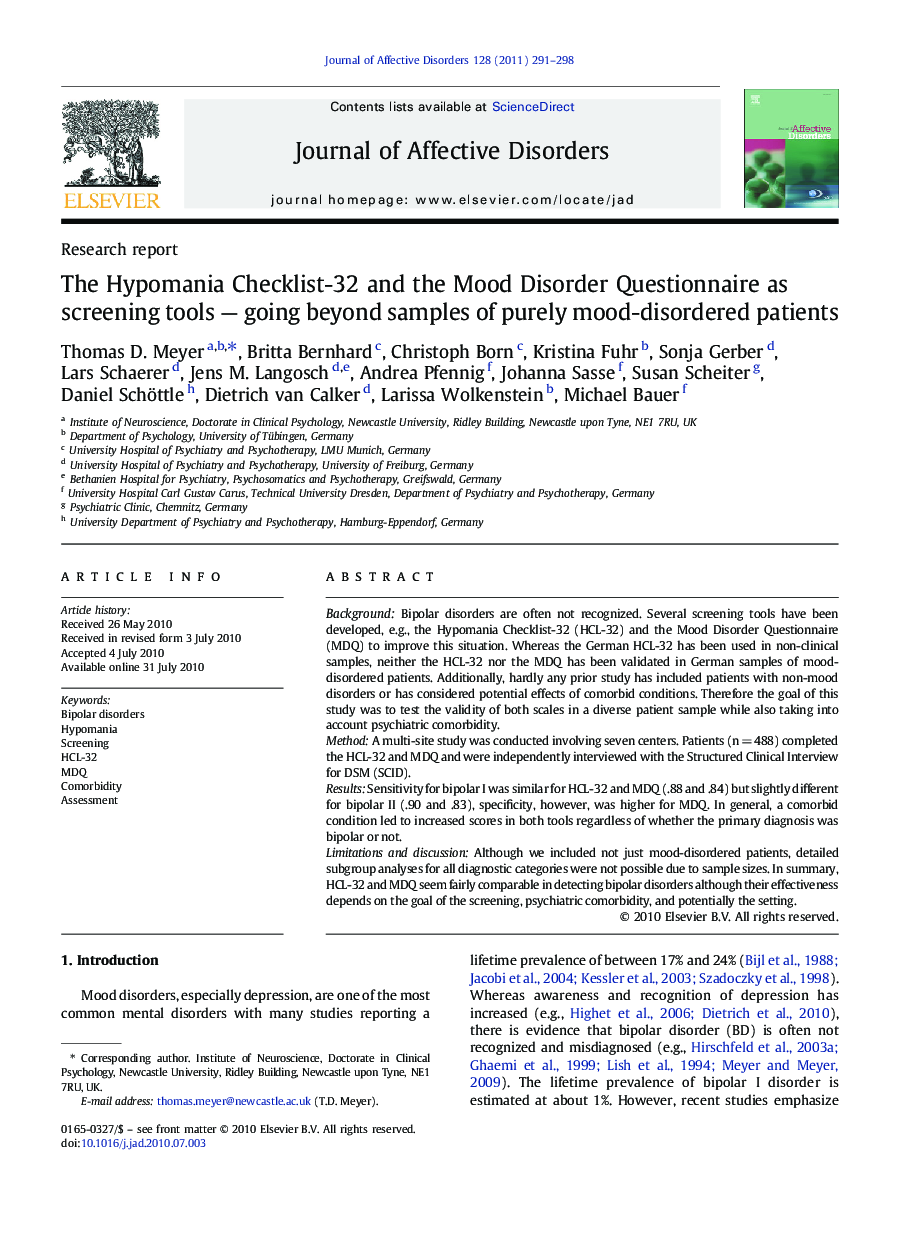| Article ID | Journal | Published Year | Pages | File Type |
|---|---|---|---|---|
| 4186597 | Journal of Affective Disorders | 2011 | 8 Pages |
BackgroundBipolar disorders are often not recognized. Several screening tools have been developed, e.g., the Hypomania Checklist-32 (HCL-32) and the Mood Disorder Questionnaire (MDQ) to improve this situation. Whereas the German HCL-32 has been used in non-clinical samples, neither the HCL-32 nor the MDQ has been validated in German samples of mood-disordered patients. Additionally, hardly any prior study has included patients with non-mood disorders or has considered potential effects of comorbid conditions. Therefore the goal of this study was to test the validity of both scales in a diverse patient sample while also taking into account psychiatric comorbidity.MethodA multi-site study was conducted involving seven centers. Patients (n = 488) completed the HCL-32 and MDQ and were independently interviewed with the Structured Clinical Interview for DSM (SCID).ResultsSensitivity for bipolar I was similar for HCL-32 and MDQ (.88 and .84) but slightly different for bipolar II (.90 and .83), specificity, however, was higher for MDQ. In general, a comorbid condition led to increased scores in both tools regardless of whether the primary diagnosis was bipolar or not.Limitations and discussionAlthough we included not just mood-disordered patients, detailed subgroup analyses for all diagnostic categories were not possible due to sample sizes. In summary, HCL-32 and MDQ seem fairly comparable in detecting bipolar disorders although their effectiveness depends on the goal of the screening, psychiatric comorbidity, and potentially the setting.
